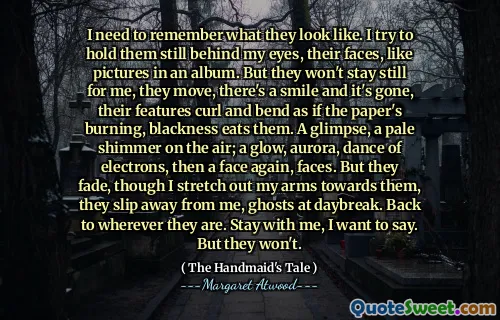Waste not want not. I am not being wasted. Why do I want?
In Margaret Atwood's "The Handmaid's Tale," the phrase "Waste not want not" reflects an attitude toward resources and value, implying that if one avoids waste, they will have what they need. However, the protagonist challenges this notion by questioning her own existence and desires, feeling that despite not being wasted in a physical sense, she still experiences a profound sense of want, particularly for freedom and autonomy.
This juxtaposition highlights the themes of scarcity and oppression in the novel. The protagonist's struggle emphasizes that mere survival does not equate to true fulfillment or happiness, illustrating how the structures of control in her society lead to a deep yearning for what is lost. Ultimately, Atwood uses this discourse to critique societal norms and the consequences of reducing individuals to mere functions within a system.






